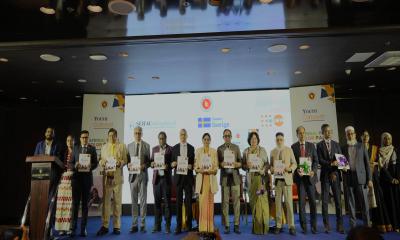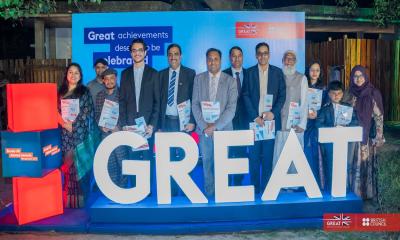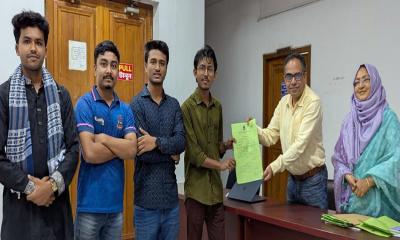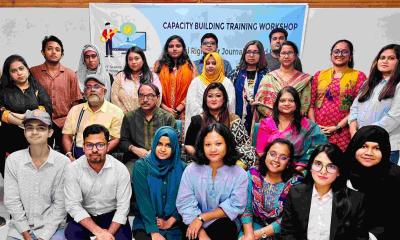As Bangladesh enters the new phase of its development, it must deal with the twin challenges of sustaining economic growth and managing the changes that comes with it, said CRI Trustee and Bangabandhu's grandson Radwan Mujib Siddiq.
In the editorial note of the eighth issue WhiteBoard, the first policy-based magazine in the country, editor-in-chief Radwan Mujib Siddiq reflected on the economic structural transformation Bangladesh is undergoing and how the country can better cope with it.
"Bangladesh is one of the emerging Asian countries experiencing economic structural transformation. Industrialization and urbanization are core to this process. To avoid growing pains, policymakers must act fast and decisively to make sure an environment exists in which cities and commerce can flourish," Radwan, Radwan, a strategy consultant and youth advocate, observed in his article titled 'Let's use the springboard we have created," he said.
A young, tech-savvy population, with higher levels of education than the previous generations is entering the workforce. The country's ready-made garments sector is a world leader, and there are signs that other industries are ready to follow suit. Infrastructure mega-projects are removing bottlenecks for economic transformation. The country is ready for take-off - but how can policymakers ensure it has a secure launching pad is what Radwan Mujib, stressed on.
In the eighth issue of the quarterly WhiteBoard, some crucial issues regarding the country's economic transformation and policymaking were highlighted.
Drawing on his decades-long experience of macroeconomic policymaking in Asia, Professor of Economics, Emeritus, Boston University Gustav Papanek remarked that diversification in manufacturing is a must. In his interview, he outlines how industry-focused job creation can lead to poverty elimination in populous countries like Bangladesh.
Observing that small and medium size enterprises, a key driver of growth in any developing economy, can only thrive within a suitable regulatory framework, Ferdous Rahman and Shenin Sherjin Promi argue that a modern insolvency regime is the need of the hour, and a good place to start reforming outdated laws.
WhiteBoard, a policy-based quarterly published by the not for profit organization Centre for Research & Information (CRI), covers a gamut of policy issues with in-depth articles by globally acclaimed academics and experts, seeking to present ways before policymakers to deal with evolving challenges.
The first issue of the magazine covered the policies adopted by Bangabandhu in the post-independence Bangladesh, a chapter less explored than deserved.
WhiteBoard can be read for free: https://whiteboardmagazine.com/issue-08/














-20260304091720.webp)






-20260303080739.webp)










-20260225072312.webp)





-20260228064648.jpg)
